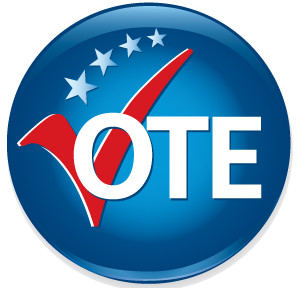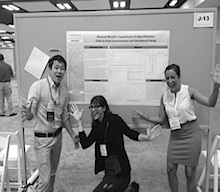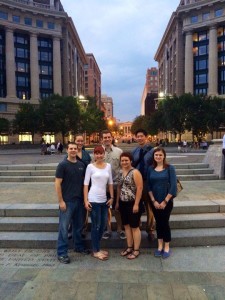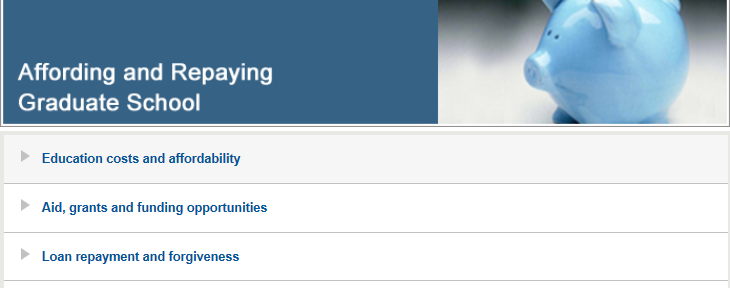 Are you voting for APAGS officers? This blog post is the second in a series of posts where candidates for open positions will answer questions to give voters some insight into what they will bring to the position for which they are running. Today, we’re meeting candidates for Member-at-Large, Communications Focus.
Are you voting for APAGS officers? This blog post is the second in a series of posts where candidates for open positions will answer questions to give voters some insight into what they will bring to the position for which they are running. Today, we’re meeting candidates for Member-at-Large, Communications Focus.
The voting period for APAGS elections will be the entire month of April. APAGS members will be provided with voting instructions in the beginning of April and will have the chance to vote for the following positions:
- APAGS Chair-Elect
- APAGS Member-at-Large, Education Focus
- APAGS Member-at-Large, Communications Focus
Member-at-Large, Communications Focus
Question: If you weren’t studying psychology, what other career would you pursue and why?
Chris DeCou – I would still be employed as a police officer, which is the career I left to pursue graduate training. Law enforcement offered me an opportunity to serve the community and address hazardous situations directly. As a police officer my focus centered on limiting the gap between the public and the police. If I were not studying psychology I would be actively involved in community policing initiatives that focused on promoting direct communication between officers and community members, and emphasized elimination of longstanding barriers to community trust and collaboration, as law enforcement still emphasizes arrest and detention as simple solutions to complex problems. Further, I would continue growing the paradigm of policing to center on restorative justice, evidence-driven policy, and genuine collaboration between law enforcement and affected stakeholders. These goals remain with me as a graduate student, and continue to influence my research with incarcerated populations and survivors of violence.
Yolanda Perkins-Volk – I recently had this conversation with my 3 year-old son, and he giggled when I told him I would be a firefighter. It is a career path I have a lot of respect for. During my time in the US Army, I learned that I can push myself physically and mentally farther than I had ever previously thought, and studying fire science and putting it to use seems like an exciting way to exercise both my mind and my body. I have to share, my heart was full when my son shared that he too has interest in being a firefighter!
David Zelaya – When I was applying to graduate programs, I was torn between pursuing psychology and student affairs. Specifically, I wanted to focus on retention and leadership development of first generation college students. Being a first generation college student myself, I can attest to the impact higher education administration had during and after my undergraduate studies. Many of the mentors I had were influential in helping me develop a foundation as a leader and hone in on my personal leadership style and skills. In addition to being drawn to higher education, I was also attracted to student affairs due to the emphasis that it places on mentorship and connecting with young adults at such a critical age. Yet, I found that I could also enact change and influence others through various careers within the field of psychology; whether it be through pursuing an academic career or college counseling.
Question: A challenge for this Member at Large is to promote collaboration and conversation between very busy people. What would you suggest to improve APAGS’s current communication practices? (150 word maximum)
Chris DeCou – My primary goal as member-at-large would be to expand the geographic diversity of APAGS and APA via focused recruitment efforts at universities without current representation, including universities in rural and frontier states (e.g., Alaska, Idaho, Montana). This type of effort relies heavily on existing communication practices with APAGS, including regular email announcements and quarterly offerings in GradPsych. One way I would expand existing practices to include students from geographically diverse backgrounds would be to develop an effective mechanism for sampling the opinions of student members via survey and focus group methods. This would include brief surveys organized via readily accessible platforms (e.g. social media), and targeted focus groups composed of members from specific subsets of programs represented by APAGS. I have benefited greatly from the use of these methods within my own research projects, and look forward to cultivating effective ways of sampling student members directly to inform APAGS initiatives.
Yolanda Perkins-Volk – Personally, while I enjoy all of the wonderful resources that can be found through APA and APAGS, I think now may be a great time to begin considering more intuitive, real-time communication methods that best utilize current technology, and is accessible through existing platforms and propagated to mobile devices. Perhaps this looks like an app, it may mean creating a space that is new, yet versatile and brings value. No matter the method, the common thread is moving forward in a manner to make technology a tool that we harness to best meet our mission in APAGS!
David Zelaya – As graduate students, we tend to be highly connected to social media; therefore, exploring ways to communicate effectively online would be a starting point. I would suggest that we work on enhancing the Division Student Representative Network by conducting an assessment of what division student leaders still need from APAGS and to explore possible ways to collaborate. In my experience with APAGS-CARED I have found that finding commonalities in projects or goals with other students or divisions fosters collaborative working groups and opens conversations. Therefore, connecting the APAGS full committee to division student leaders will be imperative in enhancing communication practices. Additionally, it is difficult to connect with graduate student leaders if they are unaware of the role of APAGS and the resources available. Developing a marketing plan will raise visibility of the resources APAGS has to offer to support graduate student training. Visit me online for more info.
*****
On Friday, check out our final post in this series to meet the candidates running for Chair-Elect. Also, be sure to vote in the upcoming APAGS election!






